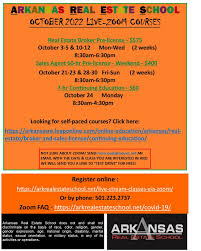
What is the difference of a real agent and a brokerage? Both have different functions so here are some differences. You may need to consult an agent or broker if you are looking to sell or buy a house. Both are valuable, so the choice is yours. To learn more, read our agent vs broker comparison article.
Real estate agent
Although there may be differences between brokers or agents, both are vital to the success of your home buying experience. While brokers deal with the legalities, buyers agents search for properties and negotiate offers. Brokers also assist in the paperwork and hold escrow funds. The role of a buyer's agents is to help buyers navigate the buying process and find the perfect house. Agents are often referred to as brokers in some jurisdictions.

Realtors are licensed real estate professionals, while agents are licensed salespeople. Each type must have a real estate license. They must adhere strictly to a code of ethics. Real estate agents, for example, must be members of NAR and adhere to its code of ethics. A broker must be licensed as a real estate agent. The two roles are therefore very different.
Agent for the buyer
Your individual situation should guide your decision about whether to use a buyer's broker or agent. Legally, the former must represent the buyer’s best interests. The buyer's agent on the other side has a fiduciary obligation to the seller. Buyer's agents are better equipped to help buyers because they have an outsider’s perspective. Buyers need to be aware of the drawbacks and benefits of working with a buyer agent.
A buyer's agent provides a range of services including market analysis, evaluation of comparable sales and determining the value of the property based on its features. He or she may also assist with preparing a co-op board package or handling other contract terms. A buyer's representative can also assist with navigating through the many speed bumps which could hinder a deal. Agents can help you avoid making costly mistakes that could endanger your deal.
Broker of insurance
It can be difficult to choose between an agent or an insurance broker if you are looking to purchase insurance. The state licenses insurance agents. They are often tied to a small number of insurance companies. Brokers, however, are able to shop around and compare all options for you, saving you significant time. Here are a few reasons you should choose a broker to help you find the right insurance.

Their representation is the most important difference between an agent and an broker. An insurance agent represents an insurer. A broker represents an insured buyer. A broker can be either independent or captive and represent any number of insurance companies. A broker can represent many different insurance companies and will typically have a wider network. A broker can represent multiple insurers while an agent may only represent one. The difference is huge.
FAQ
What should I look out for in a mortgage broker
A mortgage broker assists people who aren’t eligible for traditional mortgages. They shop around for the best deal and compare rates from various lenders. Some brokers charge fees for this service. Others offer no cost services.
How long does it take to sell my home?
It depends on many different factors, including the condition of your home, the number of similar homes currently listed for sale, the overall demand for homes in your area, the local housing market conditions, etc. It may take up to 7 days, 90 days or more depending upon these factors.
Is it possible fast to sell your house?
If you have plans to move quickly, it might be possible for your house to be sold quickly. However, there are some things you need to keep in mind before doing so. First, you must find a buyer and make a contract. Second, prepare your property for sale. Third, advertise your property. Lastly, you must accept any offers you receive.
What is reverse mortgage?
A reverse mortgage is a way to borrow money from your home without having to put any equity into the property. You can draw money from your home equity, while you live in the property. There are two types of reverse mortgages: the government-insured FHA and the conventional. A conventional reverse mortgage requires that you repay the entire amount borrowed, plus an origination fee. FHA insurance covers repayments.
Is it better for me to rent or buy?
Renting is generally less expensive than buying a home. However, you should understand that rent is more affordable than buying a house. You also have the advantage of owning a home. For example, you have more control over how your life is run.
Statistics
- The FHA sets its desirable debt-to-income ratio at 43%. (fortunebuilders.com)
- This means that all of your housing-related expenses each month do not exceed 43% of your monthly income. (fortunebuilders.com)
- 10 years ago, homeownership was nearly 70%. (fortunebuilders.com)
- Over the past year, mortgage rates have hovered between 3.9 and 4.5 percent—a less significant increase. (fortunebuilders.com)
- When it came to buying a home in 2015, experts predicted that mortgage rates would surpass five percent, yet interest rates remained below four percent. (fortunebuilders.com)
External Links
How To
How to Manage a Rental Property
While renting your home can make you extra money, there are many things that you should think about before making the decision. We will show you how to manage a rental home, and what you should consider before you rent it.
This is the place to start if you are thinking about renting out your home.
-
What is the first thing I should do? You need to assess your finances before renting out your home. If you have any debts such as credit card or mortgage bills, you might not be able pay for someone to live in the home while you are away. You should also check your budget - if you don't have enough money to cover your monthly expenses (rent, utilities, insurance, etc. This might be a waste of money.
-
How much is it to rent my home? There are many factors that go into the calculation of how much you can charge to let your home. These include factors such as location, size, condition, and season. Keep in mind that prices will vary depending upon where you live. So don't expect to find the same price everywhere. The average market price for renting a one-bedroom flat in London is PS1,400 per month, according to Rightmove. This means that you could earn about PS2,800 annually if you rent your entire home. While this isn't bad, if only you wanted to rent out a small portion of your house, you could make much more.
-
Is it worth the risk? There are always risks when you do something new. However, it can bring in additional income. It is important to understand your rights and responsibilities before signing anything. Not only will you be spending more time away than your family, but you will also have to maintain the property, pay for repairs and keep it clean. Make sure you've thought through these issues carefully before signing up!
-
Are there benefits? So now that you know how much it costs to rent out your home and you're confident that it's worth it, you'll need to think about the advantages. There are plenty of reasons to rent out your home: you could use the money to pay off debt, invest in a holiday, save for a rainy day, or simply enjoy having a break from your everyday life. No matter what your choice, renting is likely to be more rewarding than working every single day. Renting could be a full-time career if you plan properly.
-
How can I find tenants? Once you've decided that you want to rent out, you'll need to advertise your property properly. You can start by listing your property online on websites such as Rightmove and Zoopla. Once potential tenants contact you, you'll need to arrange an interview. This will allow you to assess their suitability, and make sure they are financially sound enough to move into your house.
-
How can I make sure I'm covered? If you're worried about leaving your home empty, you'll need to ensure you're fully protected against damage, theft, or fire. You'll need to insure your home, which you can do either through your landlord or directly with an insurer. Your landlord will usually require you to add them as additional insured, which means they'll cover damages caused to your property when you're present. If your landlord is not registered with UK insurers, or you are living abroad, this policy doesn't apply. In this case, you'll need to register with an international insurer.
-
You might feel like you can't afford to spend all day looking for tenants, especially if you work outside the home. However, it is important that you advertise your property in the best way possible. You should create a professional-looking website and post ads online, including in local newspapers and magazines. Also, you will need to complete an application form and provide references. Some prefer to do it all themselves. Others hire agents to help with the paperwork. It doesn't matter what you do, you will need to be ready for questions during interviews.
-
What should I do after I have found my tenant? You will need to notify your tenant about any changes you make, such as changing moving dates, if you have a lease. If you don't have a lease, you can negotiate length of stay, deposit, or other details. It's important to remember that while you may get paid once the tenancy is complete, you still need to pay for things like utilities, so don't forget to factor this into your budget.
-
How do you collect rent? You will need to verify that your tenant has actually paid the rent when it comes time to collect it. You will need to remind your tenant of their obligations if they don't pay. After sending them a final statement, you can deduct any outstanding rent payments. You can call the police if you are having trouble getting hold of your tenant. The police won't ordinarily evict unless there's been breach of contract. If necessary, they may issue a warrant.
-
What can I do to avoid problems? It can be very lucrative to rent out your home, but it is important to protect yourself. Install smoke alarms, carbon monoxide detectors, and security cameras. Check with your neighbors to make sure that you are allowed to leave your property open at night. Also ensure that you have sufficient insurance. You must also make sure that strangers are not allowed to enter your house, even when they claim they're moving in the next door.